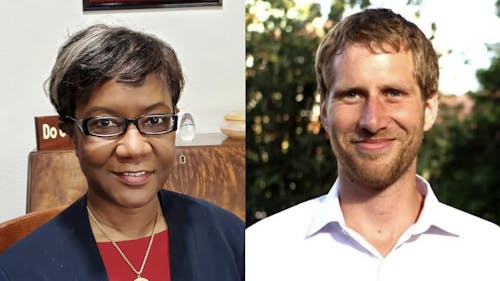Institute in School of Management and Labor Relations announces cohort of 33 scholars

In January, the Rutgers Institute for the Study of Employee Ownership and Profit Sharing in the School of Management and Labor Relations released a list of research fellows who will use their work to address global wealth disparities, according to a press release.
The Daily Targum spoke with Adria Scharf, the associate director of the Institute, as well as two recently selected fellows, about what the fellowship is and what it means to receive this distinction.
Scharf said the fellows will research and develop educational tools to closely examine business and wealth models.
"So, by becoming a fellow, you don't just get the fellowship title," she said. "You also get connected into this beautiful global network of thinkers and scholars that are researching these questions."
Daphne Berry, an associate professor in the Department of Management, Marketing and Entrepreneurship at the University of Hartford, is one of the fellows selected this year. She said she teaches students about sustainability, employee engagement and corporate social responsibility.
Berry said she was motivated to enter the field of labor studies during her time as a telecommunications engineer. She additionally said she learned about the Institute from a coworker who encountered an application for a scholarship affiliated with the Institute and said the scholarship's content shared commonalities with Berry's academic interests.
Berry said she was nominated for the fellowship due to her research on the experiences of those working in employee-owned businesses.
"Being a fellow was one of the best things that happened to me during my Ph.D. studies," Berry said. "The fellows are from many disciplines, so being able to learn about the related research of others is interesting and sometimes provides new insights for my own teaching and research."
Simon Pek, an associate professor of business and society in the Gustavson School of Business at the University of Victoria in Victoria, British Columbia, Canada, is a fellow from last year's cohort. Pek's research focuses on employee ownership, sustainability and workplace democracy.
Pek told the Targum that he teaches a course titled "Designing Innovative Organizations" in the University of Victoria's MBA program. One of the main learning objectives of this course is to analyze different business structures and ownership models.
"During (the course's final) sessions, students present their final projects in which they work in teams to pitch a new design for a real or fictional organization to address one or more of the sustainable development goals," he said. "It is great to see students' creativity, passion and ability to synthesize the course content on structure, ownership and governance."
Pek said that he became aware of the Institute's fellowship due to an email announcement in 2019, and one of his mentors initiated a conversation about it. He said he believes the Institute chose him for the fellowship due to his research interest in employee-owned businesses in Canada and their societal impacts.
"First off, it feels like a real privilege to be part of this community of practitioners and researchers, all of whom have a deep passion for employee ownership," he said. "Second, I feel confident undertaking my work thanks to the funds and legitimacy provided through the fellowship."
Scharf said that the Institute is enthusiastic about broadening its circle of scholars in the current class of fellows.
"I think that in doing the work the Institute does — exploring more equitable, inclusive ways of organizing business and organizing the economy — I think it's pointing toward and painting a vision of something different, of a more inclusive, equitable way to organize the economy," Scharf said.



